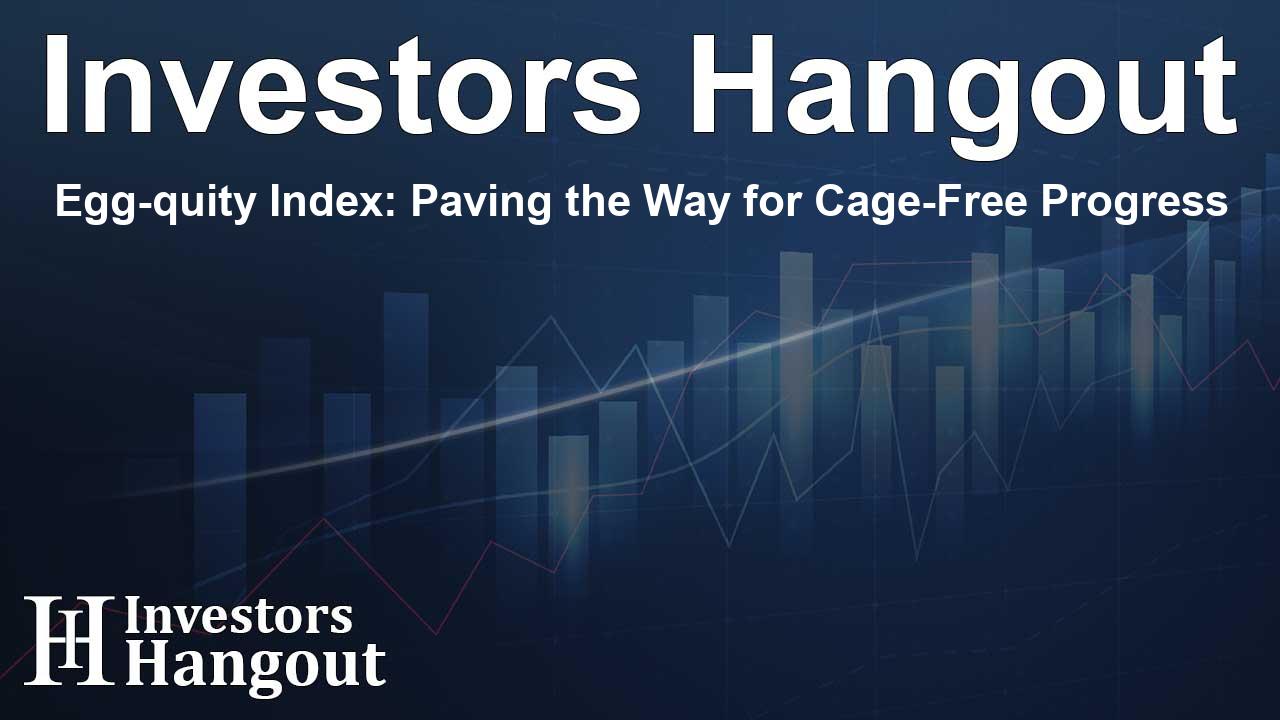Egg-quity Index: Paving the Way for Cage-Free Progress

Understanding the Egg-quity Index and Its Importance
The arrival of the New Year signals a crucial moment for global commitment to cage-free egg production, with the Egg-quity Index leading the charge. This benchmark tool, spearheaded by Mercy For Animals and partnered organizations worldwide, assesses the efforts of various companies. With a focus on fairness and transparency, the Index evaluates corporate responsibility in fulfilling cage-free commitments, particularly in less recognized areas like the Global South.
The Current State of Egg Production and Corporate Commitments
As we navigate the landscape of egg production, it's alarming to note that a staggering 84% of hens raised for egg production are still confined to restrictive battery cages. These cages provide minimal space, often forcing several hens into a cramped environment, which significantly affects their welfare. The implications of such confinement extend beyond the ethical concerns; studies indicate a correlation between such oppressive conditions and increased instances of salmonella outbreaks among hens, raising major food safety alarms.
A Historical Shift in the Cage-Free Movement
Reflecting on recent years, only a handful of companies had initiated plans to eliminate cages from their egg supply chains. However, the pace of change has increased dramatically over the past two decades. The 2024 Open Wing Alliance report shows remarkable success, with 89% of commitments made by food companies before a specified deadline being honored. This shift signifies a major triumph for animal welfare and positions the industry on a path towards more humane practices.
Brands Leading the Charge
Among those recognized by the Egg-quity Index, major names like Unilever, JM Smucker, and Danone emerge as forerunners for their comprehensive efforts. These companies have not only published detailed roadmaps but have also actively reported their regional progress toward fulfilling their commitments. They stand as examples of how transparency and accountability can lead to significant enhancements in animal welfare practices.
Areas for Improvement
In contrast, companies such as Sodexo and Accor are noted for their mid-range rankings. While they have begun to chart their progress, their reporting lacks clarity, and they haven't shared actionable plans for all markets. Meanwhile, brands like Costa Coffee and Dunkin' still have a considerable journey ahead, as their commitment updates are scant and often generalized.
Consumer Attitudes and Expectations
Consumer sentiment is shifting alongside these corporate reforms. A 2022 study revealed that a significant majority of consumers in Asian markets—somewhere between 72 to 77.2%—believe that egg-laying hens should not endure suffering. This changing mindset influences corporate behavior; over 140 companies have now pledged to eradicate cage confinement from their supply lines, with many more adhering to similar practices regionally.
Strategies for a Sustainable Future
Many influential food companies are now resorting to alternative strategies like acquiring cage-free egg credits. This step ensures compliance with their cage-free commitments, particularly in situations where physical cage-free sourcing remains challenging. The Egg-quity report outlines these initiatives, underscoring the urgency of transitioning to fully cage-free sourcing by the approaching deadline.
Conclusion: A Call for Global Accountability
As the deadline looms, the Egg-quity Index serves as a vital reminder of the need for equity and transparency in corporate commitments towards cage-free practices. Mercy For Animals passionately advocates for companies to fulfill their pledges across every region, particularly in those lagging behind. The trust of consumers and the welfare of hens comprise the foundation of these urgent calls for action.
Mercy For Animals continues to champion a more compassionate food system by actively addressing the injustices of industrial animal agriculture. Engaged in multiple countries, the organization has conducted extensive investigations into factory farming and influenced policy changes aimed at improving animal welfare. To learn more and contribute to the cause, you can visit Mercy For Animals online.
Media Contact:
Marbella Fernández
marbellaf@mercyforanimals.org
+52 1 (55) 8950 5376 extension 107
Frequently Asked Questions
What is the Egg-quity Index?
The Egg-quity Index is a tool created to evaluate and enhance corporate commitments towards cage-free egg production, focusing on transparency and progress.
Why is cage-free egg production important?
Cage-free production is essential for ensuring better living conditions for hens, promoting animal welfare and potentially reducing food safety risks.
Which companies are leading in cage-free commitments?
Companies such as Unilever, JM Smucker, and Danone are recognized as leaders in implementing equitable cage-free practices globally.
What challenges exist for companies transitioning to cage-free?
Many companies face transparency challenges and inconsistencies in reporting their progress across different regions and markets.
How can consumers contribute to the cage-free movement?
Consumers can advocate for animal welfare by supporting brands that commit to cage-free practices and by staying informed about ethical sourcing issues.
About The Author
Contact Logan Wright here.
About Investors Hangout
Investors Hangout is a leading online stock forum for financial discussion and learning, offering a wide range of free tools and resources. It draws in traders of all levels, who exchange market knowledge, investigate trading tactics, and keep an eye on industry developments in real time. Featuring financial articles, stock message boards, quotes, charts, company profiles, and live news updates. Through cooperative learning and a wealth of informational resources, it helps users from novices creating their first portfolios to experts honing their techniques. Join Investors Hangout today: https://investorshangout.com/
The content of this article is based on factual, publicly available information and does not represent legal, financial, or investment advice. Investors Hangout does not offer financial advice, and the author is not a licensed financial advisor. Consult a qualified advisor before making any financial or investment decisions based on this article. This article should not be considered advice to purchase, sell, or hold any securities or other investments. If any of the material provided here is inaccurate, please contact us for corrections.
